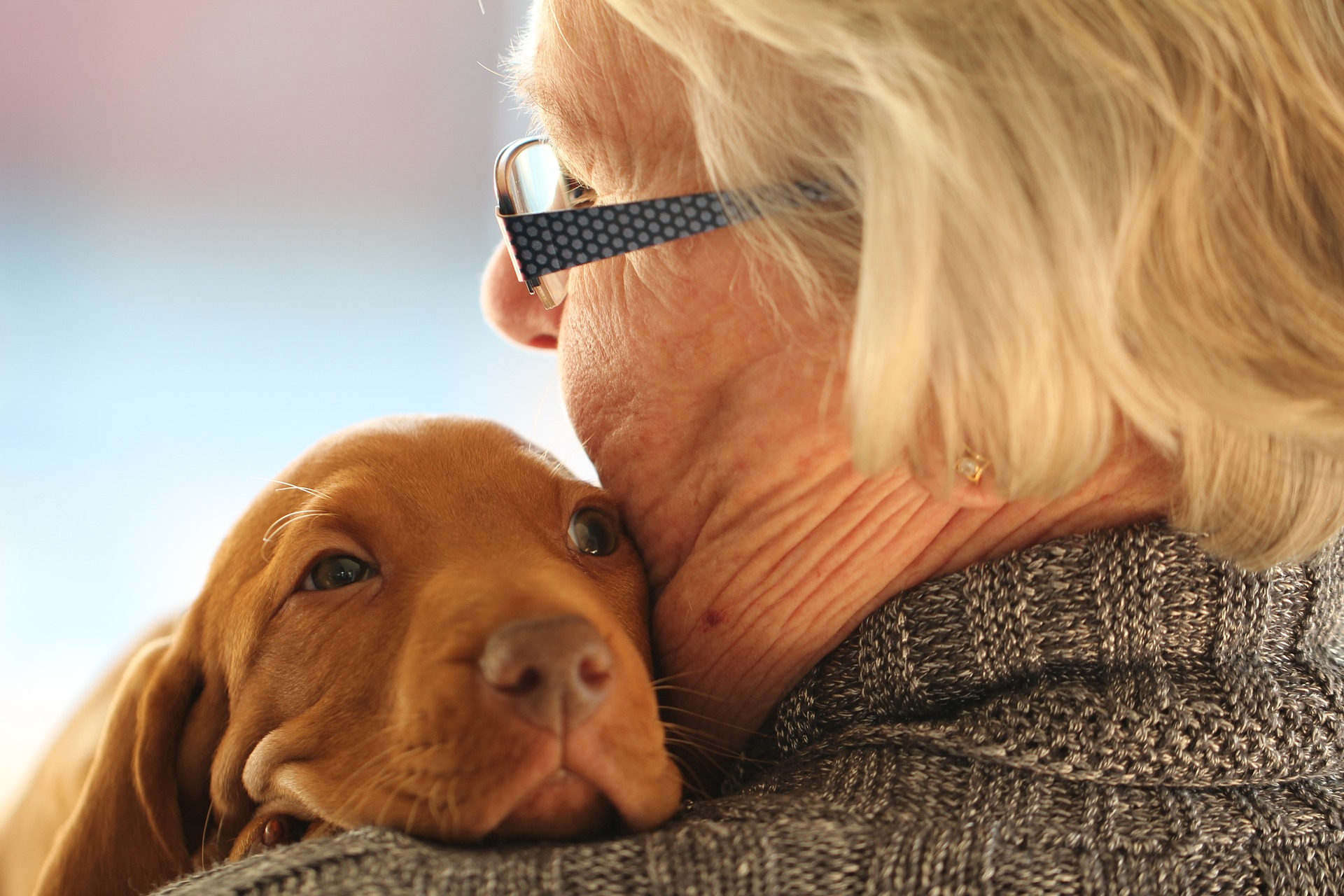Numerous studies show there are physical, emotional, and mental benefits of dog ownership for people of all ages. From encouraging daily exercise to quiet companionship, it’s no surprise to dog lovers that pooches bring loads of benefits with their wagging tails.
Of course, like any relationship, it requires the right match for happiness. You wouldn’t gift a high energy puppy to a housebound relative and expect that to go well. On the other hand, a mellow senior dog might be just the right companion.
With benefits ranging from increased exercise to a greater purpose in life, a companion pet can be perfect for many senior citizens.
Physical Activity is Healthy for Everyone
Studies show that for adults over 60, walking is the most popular form of physical activity—mainly because it's easy on the body, requires no special equipment, and can be done at one’s own pace. Research from the University of Missouri highlights that seniors who own dogs experience even greater benefits. Walking a dog not only encourages regular physical activity, which can help maintain a healthy weight, but it's also linked to fewer visits to the doctor. Plus, it provides added social interaction and companionship, which can boost emotional well-being. For many seniors, having a dog means staying active, connected, and healthier overall.
Dogs Reduce Loneliness
Simply petting an animal can reduce stress and increase feelings of companionship because it releases the “feel good” chemicals of dopamine. Walking a dog gives you an opportunity to talk to people on the street or at the dog park. Plus, everyone knows a pet gives you someone to talk to anytime you feel like it.

"'Older pet owners have often told us how incredibly barren and lonely their lives were without their pet's companionship, even when there were some downsides to owning an active pet,' says Linda Anderson, who founded the Angel Animals Network in Minneapolis with her husband Allen." (Source)
Provides Purpose
For some seniors -- especially those who live alone and don’t have an active social life -- having a pet gives them a sense of purpose and a routine.
Many older adults find that after retiring and raising their children, they’re left feeling a bit lost or without a clear purpose. Without the responsibilities of a job or family to care for, daily life can start to feel a little empty. But pets can help fill that gap. Animals rely on their owners for love, attention, food, and daily care, which gives seniors someone to care for again. This sense of being needed can be incredibly meaningful. Having a pet also encourages a regular routine—feeding, walking, playtime—which adds structure to the day and can bring a renewed sense of joy and responsibility.
What Type of Pet is Best?
If you’re considering adopting a dog for yourself or a loved one, it’s essential to consider the lifestyle and environment.
For example, if your elderly mother expresses interest in a dog, but she’s not strong, then consider a small dog like a Maltese or Shih Tzu. These are not dogs who will drag anyone down the street and can even be trained to use indoor potty pads if necessary.

Or, if your loved one isn’t able to care for a dog on their own, maybe they can enjoy visits from a therapy dog.
Pet Therapy is On the Rise
Therapy dogs are specially trained canines who must undergo rigorous training with their handler and pass a test that certifies them as therapy dogs.
Increasingly, these dogs are invited into nursing homes, retirement centers, and hospitals because they bring joy and healing to those around them.
What about you? Chances are, you’re a dog lover and already clued into dogs as man’s (or woman’s) best friend. Have you seen how they can benefit senior citizens?
This blog post originally appeared on GeniusVets.
